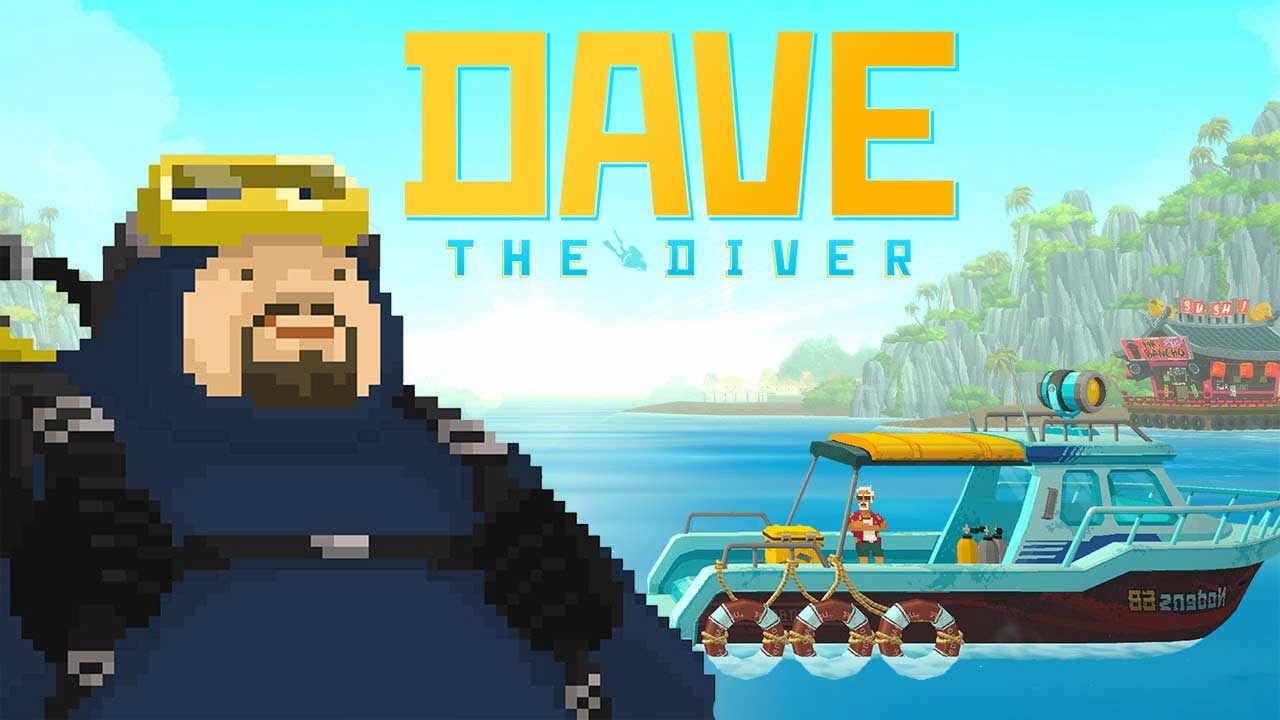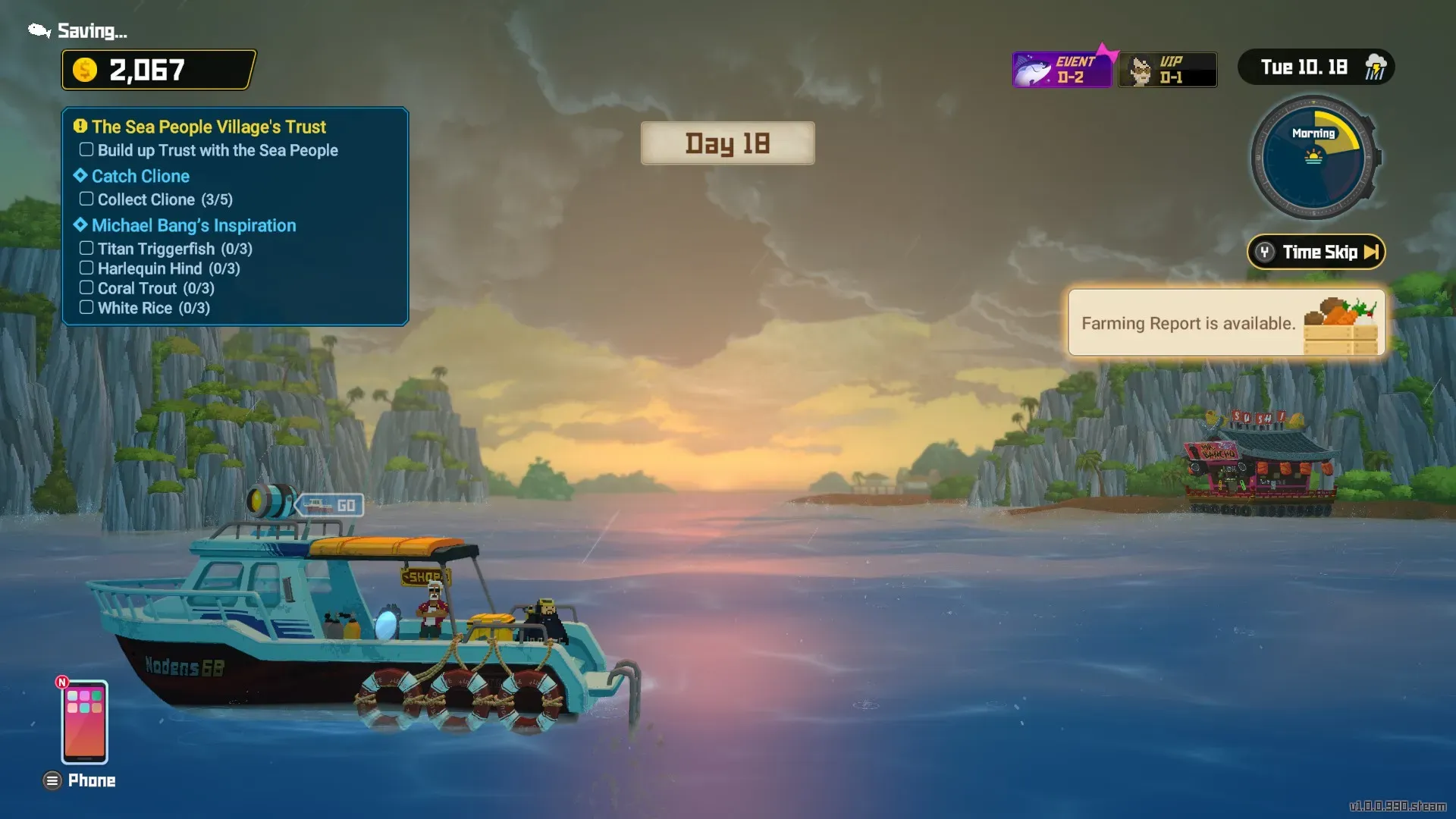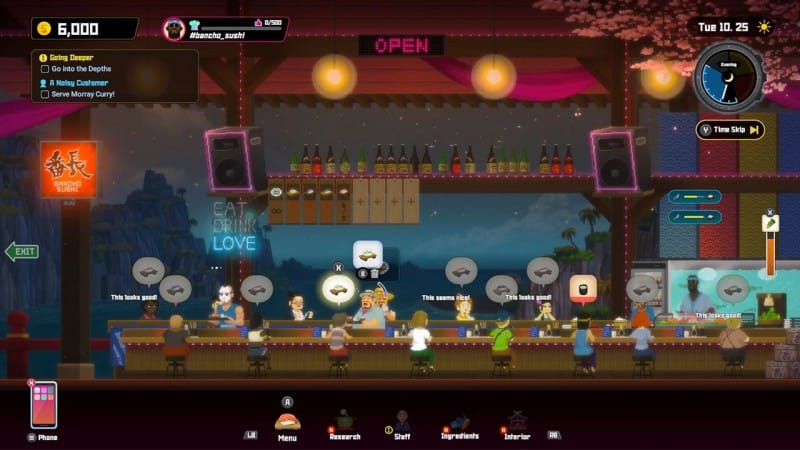A life lesson from a game about diving and making sushi

Every holiday season, I get the rare opportunity to cross off a game on my backlog.
And the game I selected wasn't even on my backlog to begin with.
Overcoming obstacles and embracing failures becomes more challenging as you get older. Playing games serves as a reminder that you have multiple lives. The more you advance, the more opportunities will come your way. And it's no big deal if you mess up. You will always have another opportunity. You might have to start back a little bit, but you can reinvent yourself to succeed.
Dave the Diver is a casual RPG that follows the story of Dave, who explores the deep sea during the day and manages a sushi restaurant at night. The game features a combination of pixel and 3D graphics with elements of time management, action-adventure, and roleplaying. The game sold over 3M copies and nominated for multiple awards in 2023.
Forty hours later, I learned one surprising life lesson exploring the depths while trying to make it as a sushi proprietor.
Dave spends most of his day on one thing - diving.
The game loop is divided into 3 parts: morning, afternoon, and night.

Dave can dive in each period, but the sushi restaurant is only open at night.

What he catches during his dives serve as the menu items for the sushi restaurant. For most of the game, the sushi restaurant is Dave's primary source of income, but he only spends up to a third of his day at the restaurant.
Dave dedicates the rest of his day to doing what he wants. In almost every case, that's diving.
This got me thinking.
How do I spend my day-to-day?
So I started to track:
- When did I start my day?
- When did I get back to my desk after lunch?
- When did I finish dinner?
For each period, I also measured my focus period, the length of time I sat down to complete a set of tasks, and what activities were done during those times.
After two weeks, I reviewed the data.
Like Dave, I also had three different focus periods during the day.
However, my focus time varied:
- Morning: 3 hours
- Afternoon: 4 hours
- Evening: 2 hours
And the activities performed in these focus periods:
- Creative (e.g. Writing, brainstorming, drawing, reading)
- Administrative (e.g. Cleaning my inbox, paying bills, meetings)
- Self-Care (e.g. Playing tennis, video games, socializing with friends)
Creative activities represented more than 70% of my mornings.
I dedicated most afternoons to administrative activities while I gravitated towards self-care during the evenings.
When my focus periods did not align with the right activity, I felt the most negative and unfulfilled.
The days when I felt great were always the mornings I created even if the rest of the day didn't go as planned.
The days when I felt my best is when I receive positive feedback from others.
This explains why morning workouts never really worked for me despite what all the gurus say.
This is why building a creation habit is my focus for 2024.
You're giving yourself permission to experiment with different topics and styles. Creating more content helps you discover what resonates with your audience and yourself.
The repetition will develop your unique voice, and you can build depth within areas of interest and relevant audience over time.
How do you build this habit?
Keep it simple.
I updated my daily routine so creation is the first thing I do when I wake up.
When I can't get my creative juices flowing, I flip to a self-care activity then try again.
What is the habit you want to develop in 2024?
-- Koh Kim